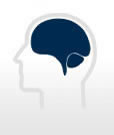Prof. Dr. Carsten Theiss,
Department of Cytology,
Faculty of Medicine

Research Programme:
In the department of cytology we focus on the cytoskeleton in regard to neuronal and glial transport mechanisms, its function during developmental processes, as well as the impact in neurodegenerative diseases, tumor biology of glioblastoma, amyotrophic lateral sclerosis and traumatic brain injury.
The impact of the Vascular Endothelial Growth Factor (VEGF) and progesterone on the central (CNS) and peripheral (PNS) nervous system is of significant scientific and therapeutical interest. Current publications from our group exhibited that both, VEGF and progesterone, show positive effects on the dendrite-, somato- and spinogenesis in neonatal and juvenile Purkinje Cells in the cerebellum. Additionally it could be shown that progesterone promotes an increase in the size and motility of neuronal growth cones in the dorsal root ganglia. These promising results might facilitate the treatment of cerebral ischemia or nerve injury. Our aim is to control and enhance the positive impact of VEGF and progesterone in neuronal tissues. Therefore we investigate the role of microRNAs in the regulation of VEGF- and progesterone- receptors and their affinity to these stimulators.
Glioblastoma (GBM) is a highly vascularized tumor with a poor outcome. Therefore targeting VEGF is a therapeutic oncological principle. Bevacizumab, a VEGF directed antibody, is already used in the treatment of GBM, but current studies assume that bevacizumab also induces a decline in neurocognitive function. Therefore we study morphological effects of bevacizumab in neuronal and glial cells.
Amyotrophic lateral sclerosis (ALS) is a motor neuron disease that affects neurons in the spinal cord and in the motor cortex. The mechanisms that lead to ALS are still unclear. We use the Wobbler mouse as an animal model for the sporadic type of ALS to investigate neurodegeneration and inflammatory processes in different neuronal structures.


